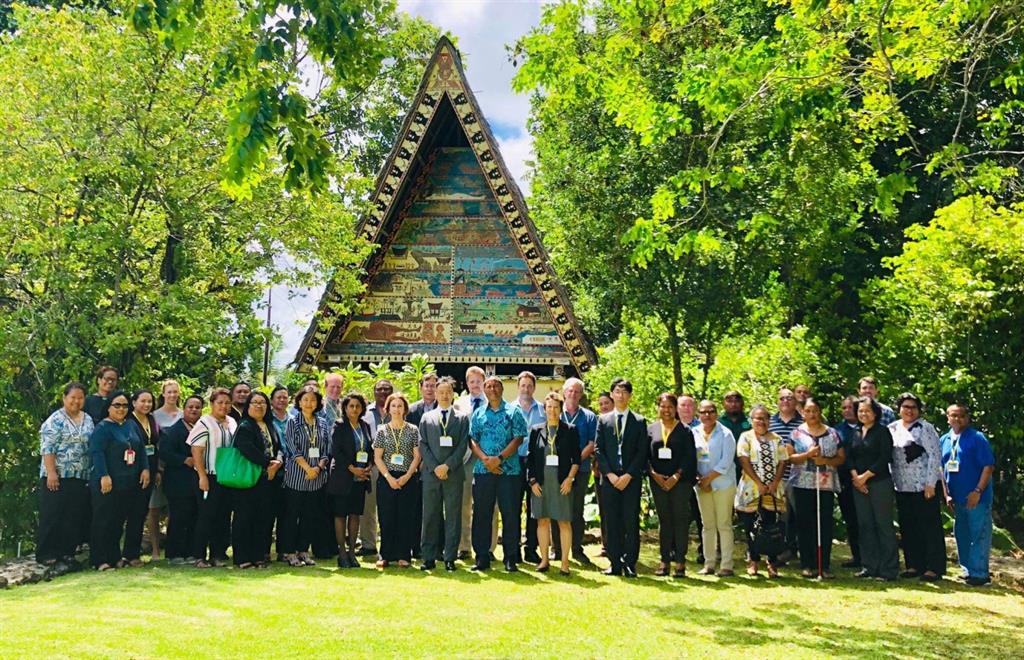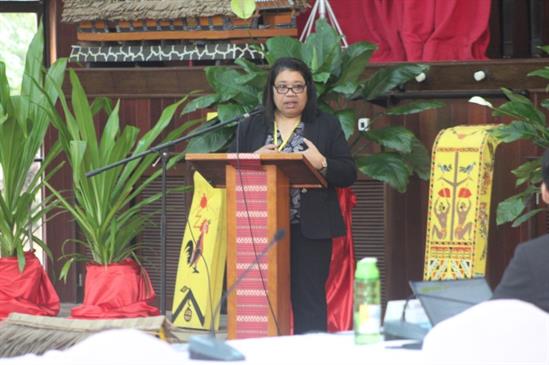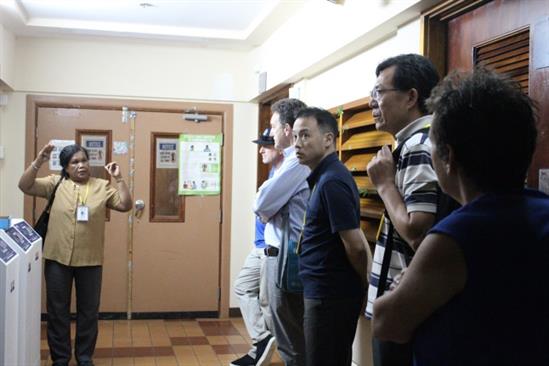
Credit: Ministry of Health – Republic of Palau
Palau is the latest country in the WHO Western Pacific Region – and only the second Pacific Island country – to invite global experts to support them in evaluating their preparedness to respond to outbreaks and health emergencies.
We’re committed to doing what we can to keep the people of Palau safe when outbreaks and emergencies strike,
Dr Emais Roberts, Minister of Health of Palau
From 29 July to 2 August, global experts from fields such as disease surveillance, emergency response, laboratory, biosafety and biosecurity joined their local counterparts in the city of Koror to conduct a Joint External Evaluation (JEE). All eight government ministries had been instrumental in the planning of the JEE, as had other stakeholders and partners, particularly the Palau Healthcare Coalition which is comprised of various government, non-government and civil society entities.
Home to approximately 18,000 people, the small island nation of Palau has made big investments in protecting the health and safety of its communities.
“We’re committed to doing what we can to keep the people of Palau safe when outbreaks and emergencies strike,” said Dr Emais Roberts, Minister of Health of Palau. “This week has been a tremendous opportunity to all come together and look at how we can continue strengthening our health security.”

Credit: Ministry of Health – Republic of Palau
Developed by WHO, Member States and partners, the JEE process was created to help countries evaluate their capacity to prevent, detect and respond to infectious disease threats. This involves reviewing the status of a country’s core capacities for health emergency preparedness and response, required under the International Health Regulations (2005) or “IHR” – a legally-binding instrument signed by 196 countries. The JEE is not a test, but a learning exercise in which national and international experts come together to look at current capacities and agree upon a set of recommended actions to strengthen areas of need.
While official findings will be released at a later date, international JEE participants noted Palau’s ability to rapidly mobilize resources and bring together multiple stakeholders under the National Emergency Committee for a coordinated response to health crises. Following Super Typhoon Haiyan in 2013, for example, the government was able to rapidly respond, dispatching helicopters to provide life-saving medical treatment and supplies to people in need.
“Palau should be congratulated on the work they’ve done to date to respond to disease outbreaks and other health emergencies,” said Dr Tomoya Saito, Chief Senior Researcher at the National Institute of Public Health of Japan and head of the international JEE team. “However, we all have more work to do to strengthen preparedness, especially ahead of the next disaster or pandemic. I hope that the JEE this week will result in renewed momentum here in Palau as they push for greater health security.”

Credit: Ministry of Health – Republic of Palau
WHO Country Liaison Officer, Dr Eunyoung Ko , said that the JEE had given the Organization and partners a clearer idea of the support they will be able to provide to Palau in the coming years: “We will continue to stand alongside Palau as they work to implement the JEE recommendations and boost their preparedness for health emergencies.”
More than 100 countries around the world have now completed a JEE. In the Western Pacific Region, this includes Australia, Cambodia, the Federated States of Micronesia, Japan, the Lao People’s Democratic Republic, Mongolia, New Zealand, the Philippines, the Republic of Korea, Singapore and Viet Nam.
Across the Pacific, the Asia Pacific Strategy for Emerging Diseases and Public Health Emergencies (APSED III) and the Pacific Health Security Coordination Plan 2017-2022 (PaHSeC) guides countries and development partners to work towards strengthening national and regional capacities for health security, required under the IHR. Under the IHR Monitoring and Evaluation (M&E) Framework, countries are guided to annually self-report on their IHR implementation, and undertake M&E activities like JEEs, simulation exercises and after-action reviews.




